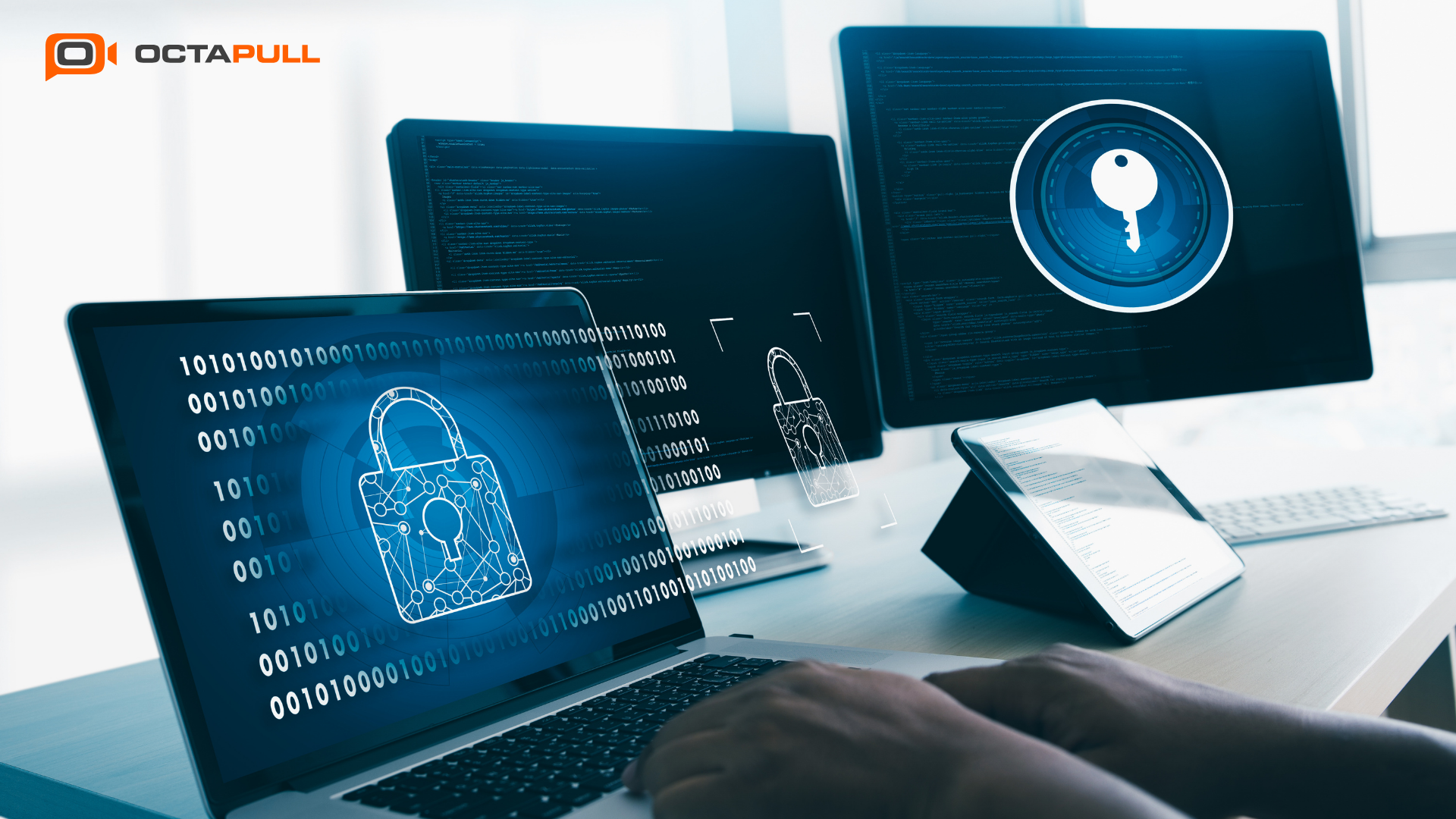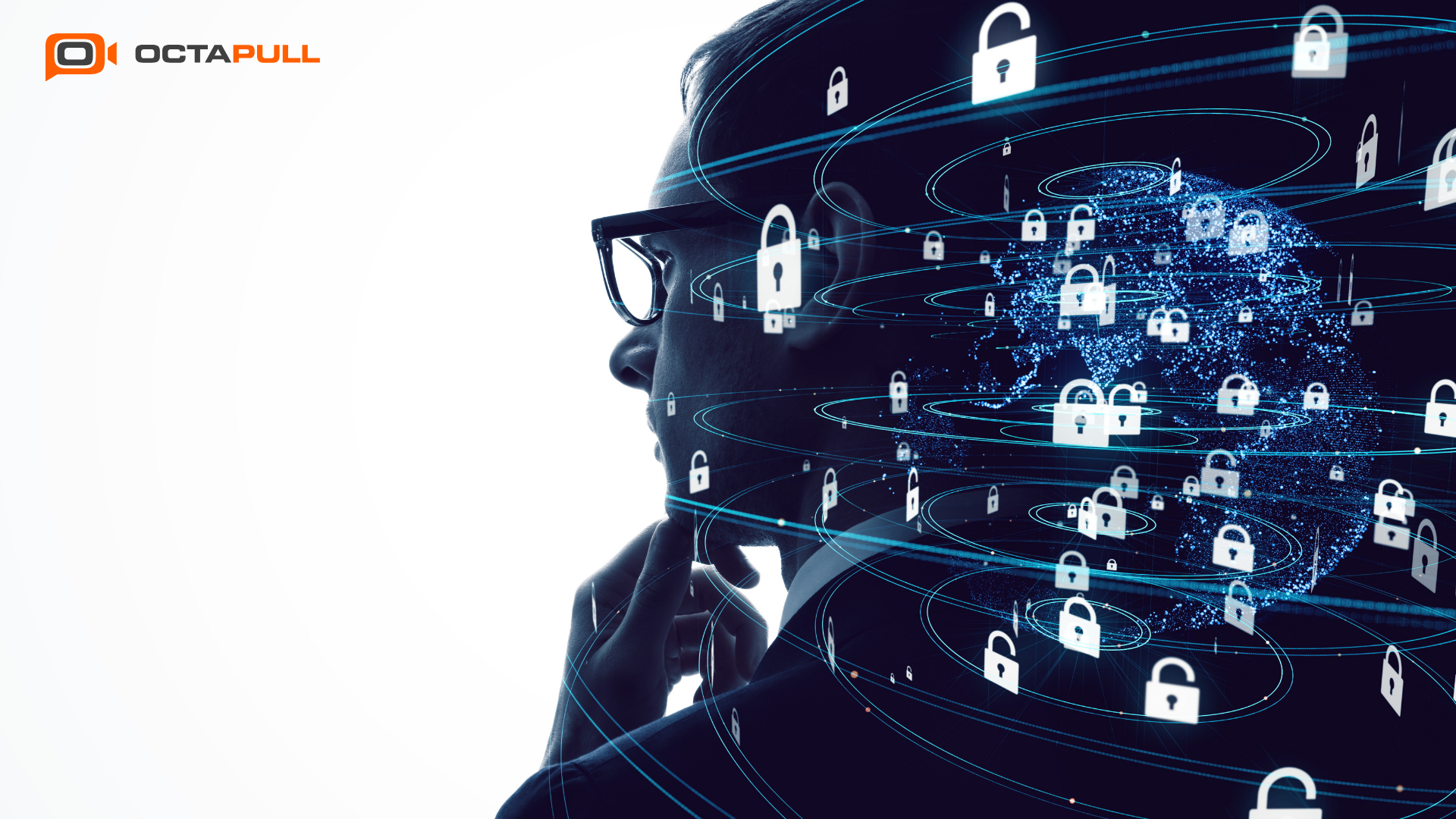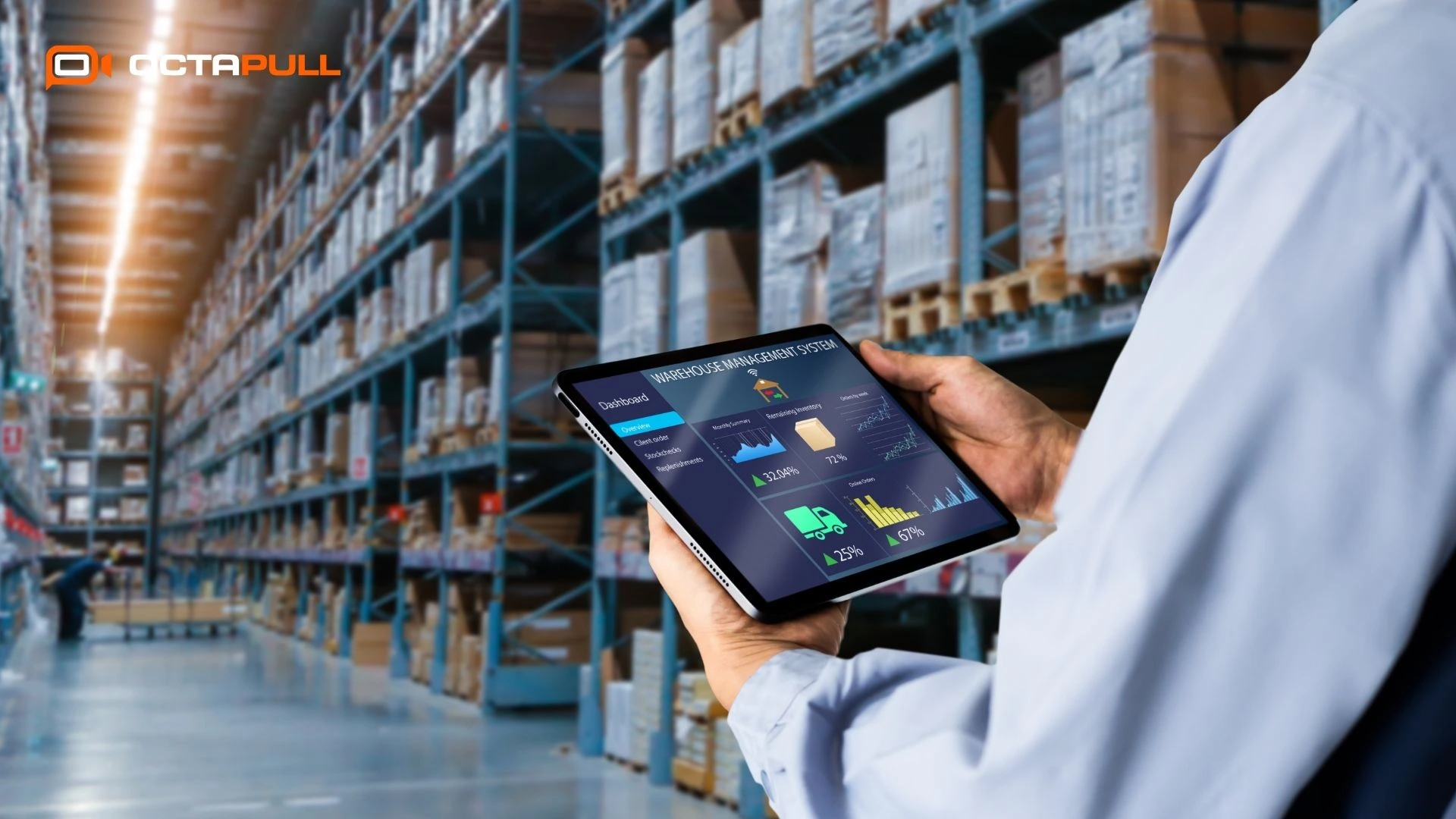Securing Your Virtual Office: OctaMeet's Guide to Digital Safety
In today's digitalized world, business operations have undergone significant transformation. Traditional office setups have given way to remote and hybrid working models, creating new opportunities and challenges for businesses.
Such working models, moreover, have contributed to the emergence of new working arrangements. Many of the business processes have transformed working environments into virtual ones.
These evolving work environments require not only adaptability but also a heightened focus on digital safety. With virtual offices becoming the norm, organizations must protect their data and processes against cyber threats to ensure business continuity.
In this content, we explore why digital safety is crucial in virtual office setups and share actionable strategies to secure your business in a digital environment, emphasizing solutions like OctaMeet, which are designed to support secure virtual operations.
Why Digital Safety Matters in Virtual Offices
For businesses transitioning to digital-first operations, digital safety is a primary concern. Remote work involves storing and sharing substantial amounts of sensitive information—ranging from business documents to employee details—in a virtual space.
The stakes are high: a data breach can lead to operational disruptions, financial losses, and reputational damage. Digital safety, therefore, isn't just a technical requirement; it's a critical business priority.
The Essentials of Digital Safety
Why is digital safety important? Why should businesses be cautious about this issue, and what steps should they take to protect themselves?
Digital safety is a highly significant concern for many businesses due to a wide range of reasons. It becomes increasingly significant to businesses as they adopt a remote collaboration model and rely on a virtual office setup to save a significant portion of their data.
In this virtual environment, a large amount of sensitive information is stored and protected, such as organizational data, business documents, and employee information.
It underlines the importance of taking strong digital safety measures to protect this valuable data and ensure the continuity of business processes.
Returning to our first question: Why is digital safety important and what are its essential components? Let's explore some of the key reasons for its essence:
Business Sustainability
Security is important for many businesses, however, for companies that carry out their business processes in virtual environments, digital safety is of much more critical significance.
In terms of digital safety, it is essential to secure the virtual office structure. Businesses must be aware of the possible threats in their business environment.
This includes maintaining compliance with the latest digital safety practices and continuously monitoring and updating the systems used in business processes.
The slightest security breach in such systems will affect the sustainability of the business.
Indeed, the business activities conducted in virtual environments are mostly carried out through digital data, documents, and records.
These data may include sensitive information such as financial records as well as customer information.
This valuable data includes the necessary elements required in business processes and is essential for the workflow to proceed flawlessly. Any breakage and disruption in this scope will lead to disruption of operations and business processes.
Company Credibility
Company credibility is an essential cornerstone for agreements, collaborations, and partnerships in the business world.
This credibility plays a crucial role in fostering trust, not only among business partners but also among customers. This trust, in turn, acts as a medium to progress and expand the business.
For digital safety, even the smallest aspects of your business operations are of great importance. Agreements and contracts executed in digital environments are just one example of those critical operations.
Protecting the sensitive information of your business partners, investors, and customers in this digital environment is not only a responsibility but a necessity.
Any security breach in this area can undermine the trust of not just a single deal but across the entire business. Such breaches can discredit the company's credibility and discourage future collaborations and partnerships.
Financial Stability
In the context of virtual office setup, ensuring digital safety is not just about protecting data; it is also about protecting the sustainability and credibility of your business.
Any security breach can lead to disruptions in business processes, which can result in significant financial losses. Thus, any disruption will also affect partnership relations and consequently financial stability.
Furthermore, due to breaches, businesses are required to pay certain fees and penalties in terms of legal implications.
This is because other parties may take legal action, initiate lawsuits, and seek legal penalties if their data is not adequately protected.
Alternatively, if there is a breach or leak in digital safety systems, companies will have to spend large sums of money to rebuild these systems.
Building these systems from scratch instead of keeping track of them on a regular basis can cost businesses dearly.
This is not only an expense but also a potential threat to the financial stability of the organization.
The Management of Digital Security
To protect against cybersecurity threats and create a secure virtual work environment, businesses need to implement a series of essential safety measures:
1. Investing in Security Software
Security software is the first line of defense in virtual office setups. Anti-virus and anti-malware programs protect systems from unauthorized access and cyberattacks. By keeping security software updated, companies can shield their networks from emerging threats.
2. Utilizing Strong Passwords and Authentication Systems
One of the simplest yet most effective methods to prevent security breaches is using complex passwords. Strong passwords, combined with multi-factor authentication (MFA), significantly enhance security. MFA adds an extra layer of protection, requiring verification from more than one device or method before access is granted.
3. Implementing Access Controls
Access controls are vital for managing who can view or modify company data. By limiting access to sensitive information, businesses can minimize security risks. Implementing role-based access control (RBAC) ensures that employees only have access to the data necessary for their roles. Regular reviews of access privileges also prevent unauthorized access.
4. Securing Data Storage and Encryption
Choosing reliable, secure storage solutions is essential. Sensitive information should always be encrypted, both when stored and during transfer.
End-to-end encryption is a highly effective strategy for protecting data from unauthorized access, ensuring that even if intercepted, the data remains inaccessible to external parties.
5. Using Secure Communication Tools like OctaMeet
Secure video conferencing platforms are indispensable for virtual offices. OctaMeet, for instance, provides end-to-end encryption for online meetings, ensuring that sensitive discussions remain private.
Additionally, OctaMeet’s commitment to storing data on its servers further minimizes the risk of data breaches by avoiding third-party storage.
The Role of OctaMeet in Enhancing Digital Safety
As businesses continue to adopt remote and hybrid models, tools like OctaMeet are instrumental in maintaining a secure digital environment. Here’s how OctaMeet helps ensure digital safety for virtual offices:
- End-to-End Encryption: OctaMeet's end-to-end encryption ensures that meeting content remains private and inaccessible to unauthorized users. This protection is particularly important for businesses that handle confidential information during virtual meetings.
- Data Protection: Unlike many platforms that rely on third-party servers, OctaMeet stores all user data on its servers, reducing the likelihood of external access or leaks. This commitment to data sovereignty is a significant advantage for businesses concerned about data privacy.
- User Authentication and Access Controls: OctaMeet offers robust authentication protocols to secure user access. These include options for MFA and administrative control over participant access, which help safeguard meetings from potential security threats.
Maintaining Compliance and Staying Updated
Adopting security best practices is an ongoing process. Regularly updating software, staying informed about potential vulnerabilities, and ensuring compliance with industry standards are key to sustaining digital security. Companies should also train employees on digital safety protocols, from recognizing phishing attempts to safely handling sensitive information.
Building a Safer Virtual Office with OctaMeet
Digital safety is essential for any business utilizing a virtual office setup. From safeguarding sensitive data to maintaining customer trust, strong security measures protect not only business assets but also long-term operational stability. OctaMeet, with its advanced security features and commitment to data protection, stands as an invaluable tool for companies looking to secure their virtual operations.
Embrace digital safety with confidence by choosing OctaMeet for your secure virtual office needs. Start protecting your data and ensure a secure digital workspace today.
So, would you like to try OctaMeet? Then, sign up and start using your 30-day free trial. If you want more information about OctaMeet, you can contact us or book a demo meeting with our product team.






